Weekly Email – Baptism of the Lord
Dear friends,
On Tuesday 28th January 2025 at 6.00 pm, there will be a parish visit to the British Library to see a new exhibition called, “Medieval Women: in their own words.” There are still a few tickets left. If you wish to come, book quickly!
I was able to see this first-rate exhibition just before Christmas and was incredibly impressed by the extraordinary range of fascinating texts, objects and artefacts that the Library has drawn together.
The exhibition seeks to help us discover more about “the rich and complex lives of women in the Middle Ages, with over 140 extraordinary items that reveal their artistry, resourcefulness, courage and struggles.” I am very pleased and excited that one of the curators, Julian Harrison, has agreed to meet us and give us an introduction to the exhibition before we enter. A huge thank you goes to Rachel Foss for helping to facilitate this.
The exhibition itself ranges across a huge array of contexts that reveal the life, thoughts, activities and creativity of women in this period: the domestic sphere; the intimate and medical realm; public politics and the exercise of power; work and money; marriage and inheritance; and the spiritual life of religious and lay women alike.
In many ways the exhibitions seeks to allow voices to be heard that are often ignored in the historical record. There is, quite simply, significantly more extant material written by men from the Medieval period, and female illiteracy was high. Female voices can, therefore, be overlooked and go unheard. As a corrective, we see revealed in this exhibition fascinating insights into scenarios where women could exercise significant influence, were responsible for impressive literary outputs, and led culturally rich and fulfilling lives.
A repeated and fascinating trope is that of the way in which the life of faith – and especially that expressed in the religious life – was a sphere in which women exercised significant control over their own destinies and were capable of extensive literary discourse, academic attainment, theological speculation, artistic creativity, and political power.
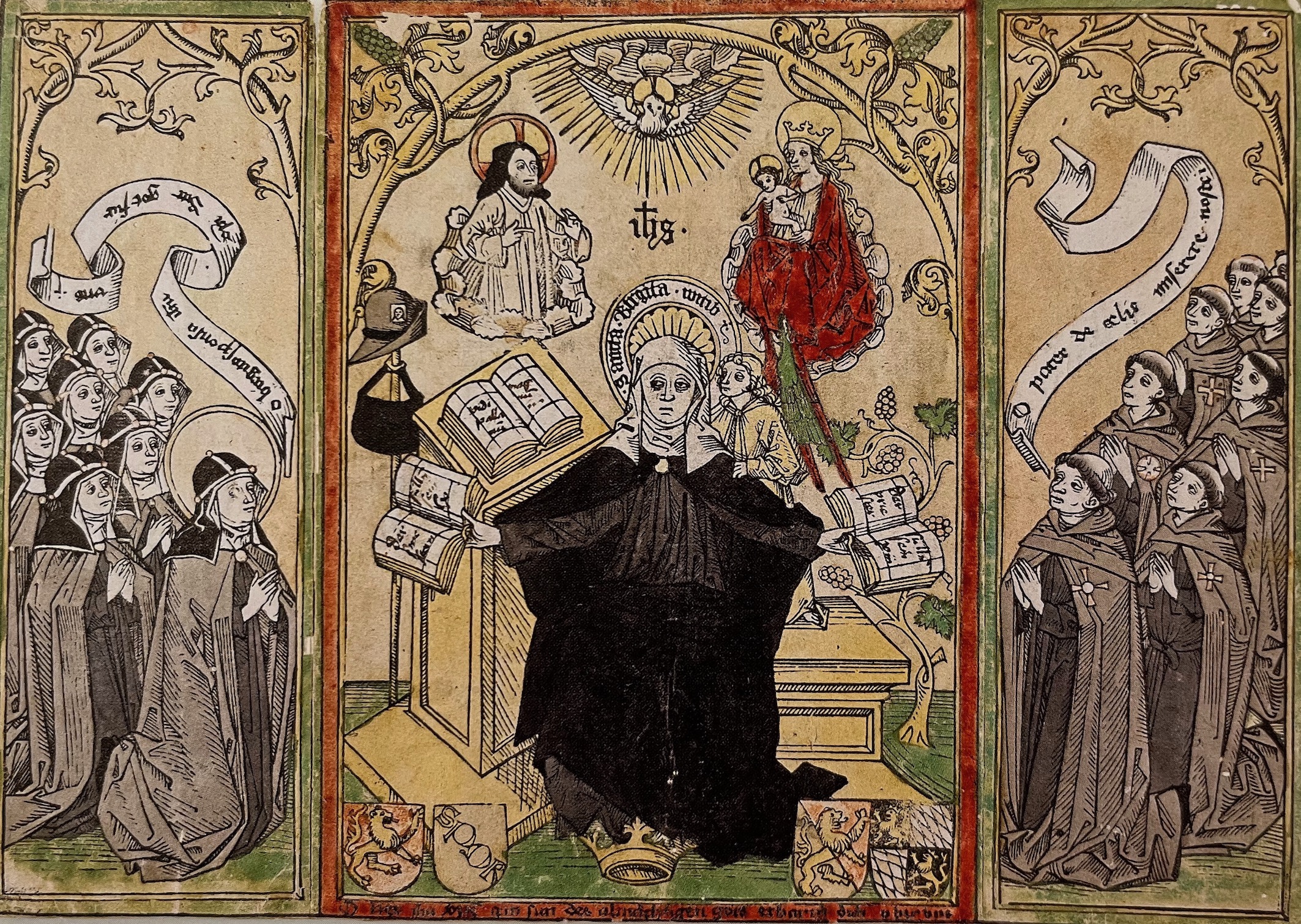
[St Bridget of Sweden and her nuns and brothers, Augsburg 1480-1500, on display in the Medieval Women Exhibition.]
Much space is devoted to exploring the writings of the great Medieval female mystics and writers such as Margery Kempe, Julian of Norwich, Bridget of Sweden, and Hildegard of Bingen. Other names, whom I had not known of, however, prompted equal interest for me: such as Herrad of Landsberg and her great work (destroyed by Prussian artillery fire!), the Hortus Deliciarum; the Franciscan artist and illuminator Sibilla of Bondorf; and Anne of Llanllyr’s poem requesting a pet monkey for her convent!
We also explore female figures who exercised political power. These are frequently women of high birth, such as Empress Matilda, Eleanor of Castile, Melisende, Queen of Jerusalem, Isabella of France, and Juana the Mad. However, the life of Joan of Arc also reveals those of more humble origins could have influence, and is a remarkable example of a woman exercising charismatic leadership in the political and military realm.
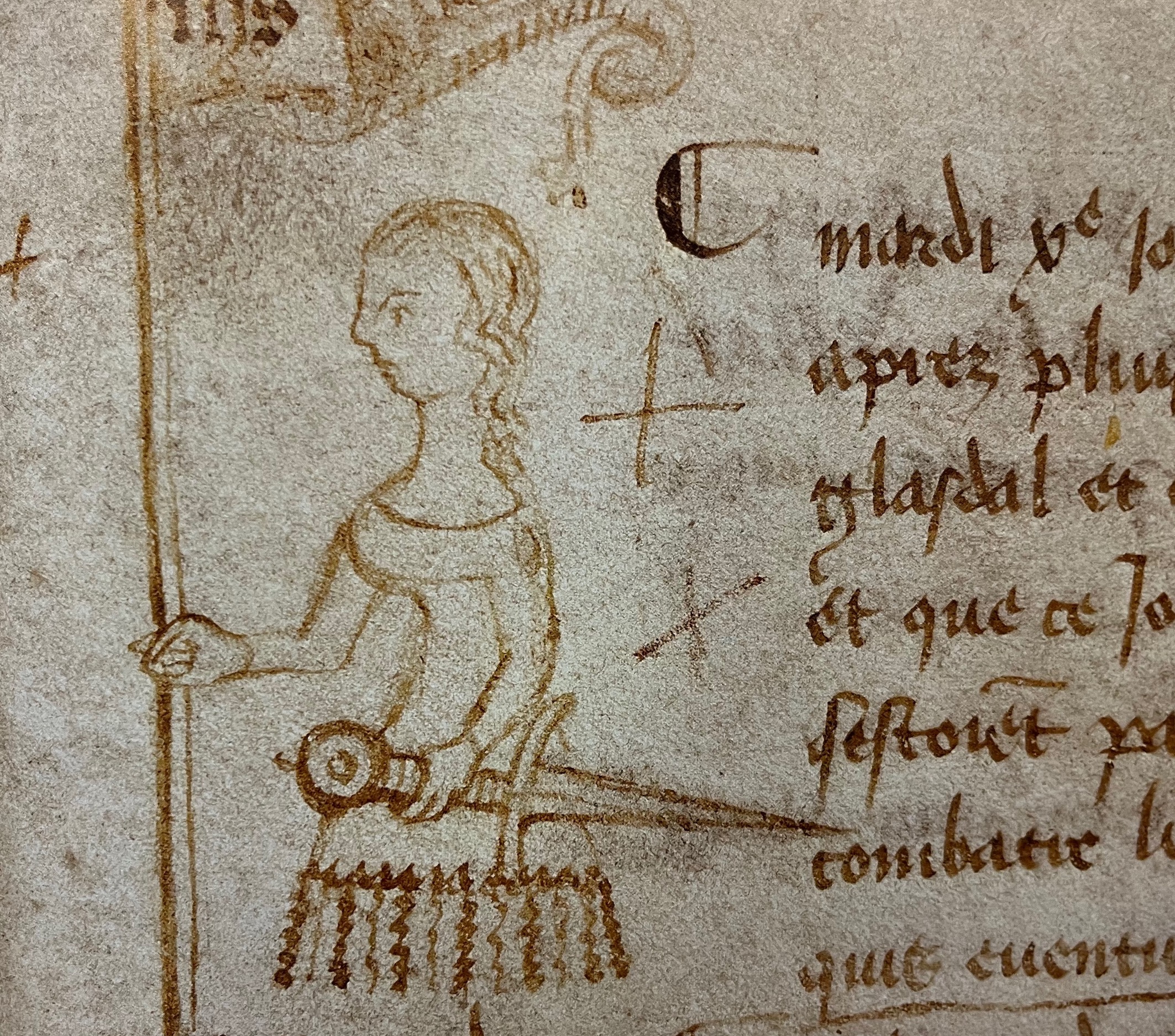
[The only known contemporary portrait of Joan of Arc, made by Clément de Fauquembergue in the Protocol of the Parliament of Paris, 10th May 1429, on display in the Medieval Women Exhibition.]
One of the most interesting sections for me was that devoted to how the female body was perceived and written about – often by men. Women’s bodies were seen by the medical establishment as weaker and more prone to disease than men’s. Nonetheless, women’s health is written about by women too – unsurprisingly with greater medical and scientific accuracy! The most famous text on female health written by a woman in the Medieval period was the Trotula, named after its female author. The lives of female saints whose bodies show remarkable miracles or who suffer from disease and physical affliction were also used as a way of exploring the dignity, complexity, vulnerability and beauty of the female body.
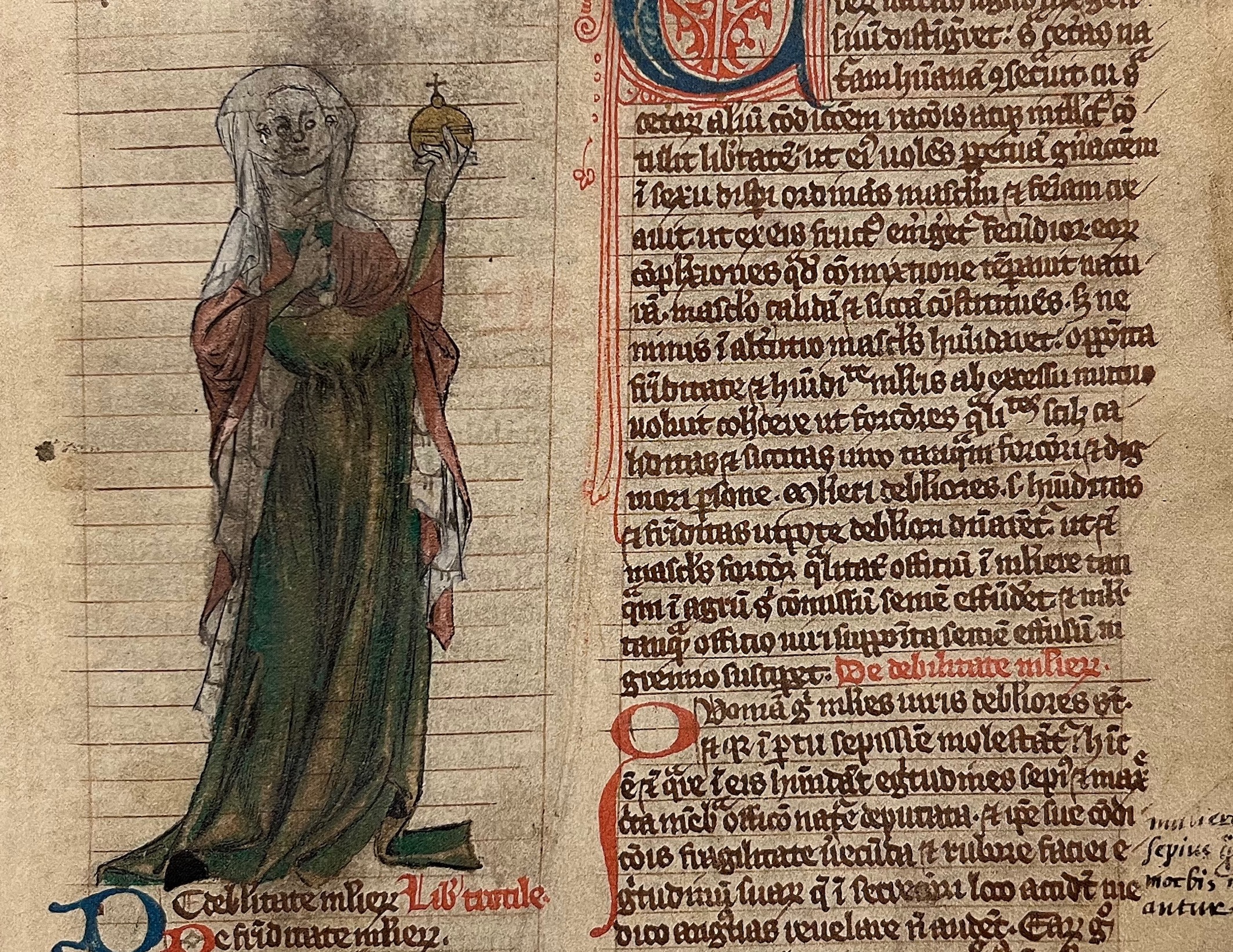
[A rare image of Trota of Salerno, Italian woman physician and author of a treatise on female health, on display in the Medieval Women Exhibition.]
Child birth is also a focus of extensive discourse. There is on display a remarkable object: a piece of parchment called a birth girdle. Said to bring health and good luck by virtue of the texts, prayers, and images inscribed on it, it was wrapped around a women giving birth. An image of the wound in the side of Christ was clearly often kissed or possibly positioned directly over the womb, bringing about a fascinating theological concatenation: just as the Lord brings the Church into being as water and blood flow from his pierced side, so a woman brings life into being through child birth. The experience of women going through the perilous and often bloody journey of child birth and the experience of Christ making his blood-soaked way to the Cross are seen in the light of each other, and conceived of as parallel moments of mystical birthing, and redemptive blood letting.
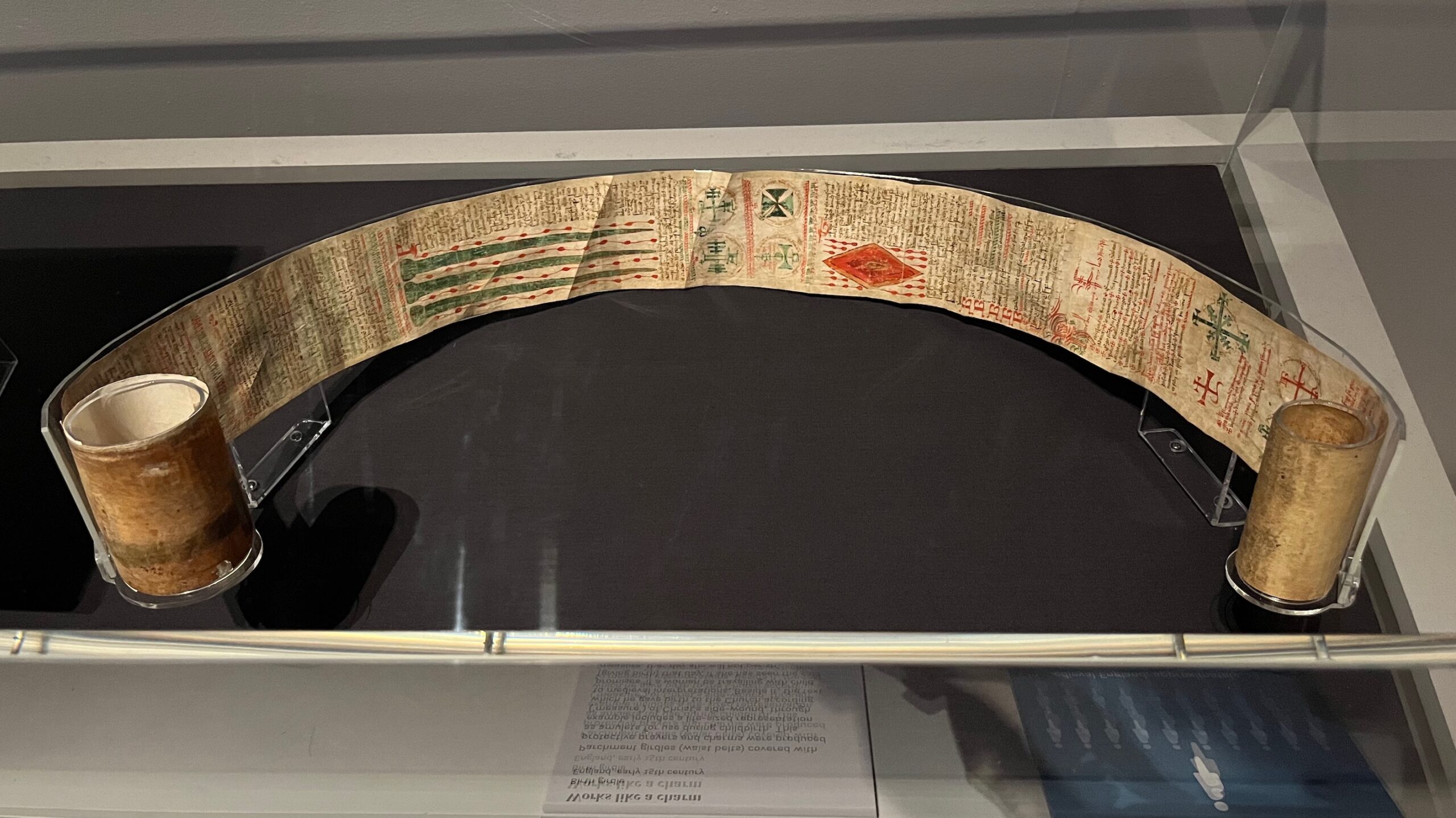
[A birth girdle, with images of the Passion: three nails and the side wound of Christ. One of only nine extant English Medieval birth girdles.]
There are also what one might simply describe as “show stopper” items of significant historical rarity or importance: one such which fascinated me was a letter from Joanne of Arc. Only three letters signed by her exist. Although illiterate, she dictated instructions to an amanuensis, and signed them (with, experts assert, her left hand) at the bottom in large, shaking, infantile handwriting.
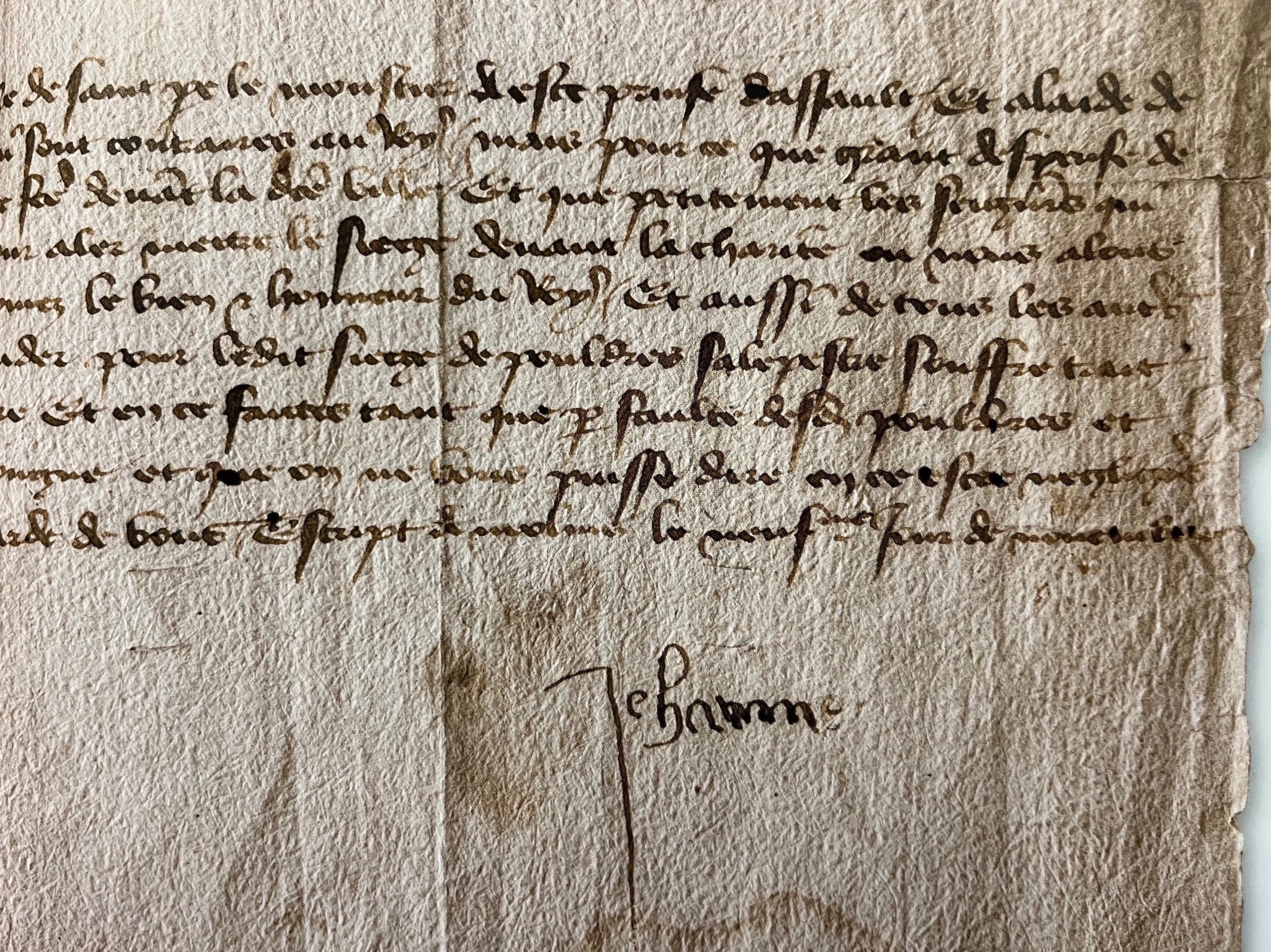
[Joan of Arc’s signature, Moulins, 9th Nov 1429.]
Our visit to “Medieval Women” will be followed by supper together at Pizza Express on the Euston Road, opposite the Library. The exhibition costs £15 and the two course dinner at Pizza Express is £30. You can book your tickets and places for the dinner via Eventbrite here.
In addition to the physical visit to the British Library, a week afterwards, there will be the opportunity to discuss, analyse and debate what we saw further through one of our Zoom Theology seminars on Tuesday 4th February at 7.00 pm.
Our online seminar will be led by two significant academics in the realm of Medieval history and theology: we’ll be joined by Dr Mark Philpott, a medievalist and historiographer at Keble College, Oxford; and Dr Charlotte Gauthier, a historian of Church and State in the Medieval and Early Modern period (who also spoke earlier in the autumn at our in person formation session on the C14th Poem “Pearl”). They will help us reflect on the exhibition, and understand more about how theology, religious life, and Christian faith influenced the role of women in Medieval Europe. You can read more about our online Zoom Theology series and find the seminar Zoom link here.
I look forward to exploring a fascinating area of history and theology over the coming weeks which this exhibition gives us the opportunity to ponder. Do sign up as soon as possible if you wish to come.
Fr Peter
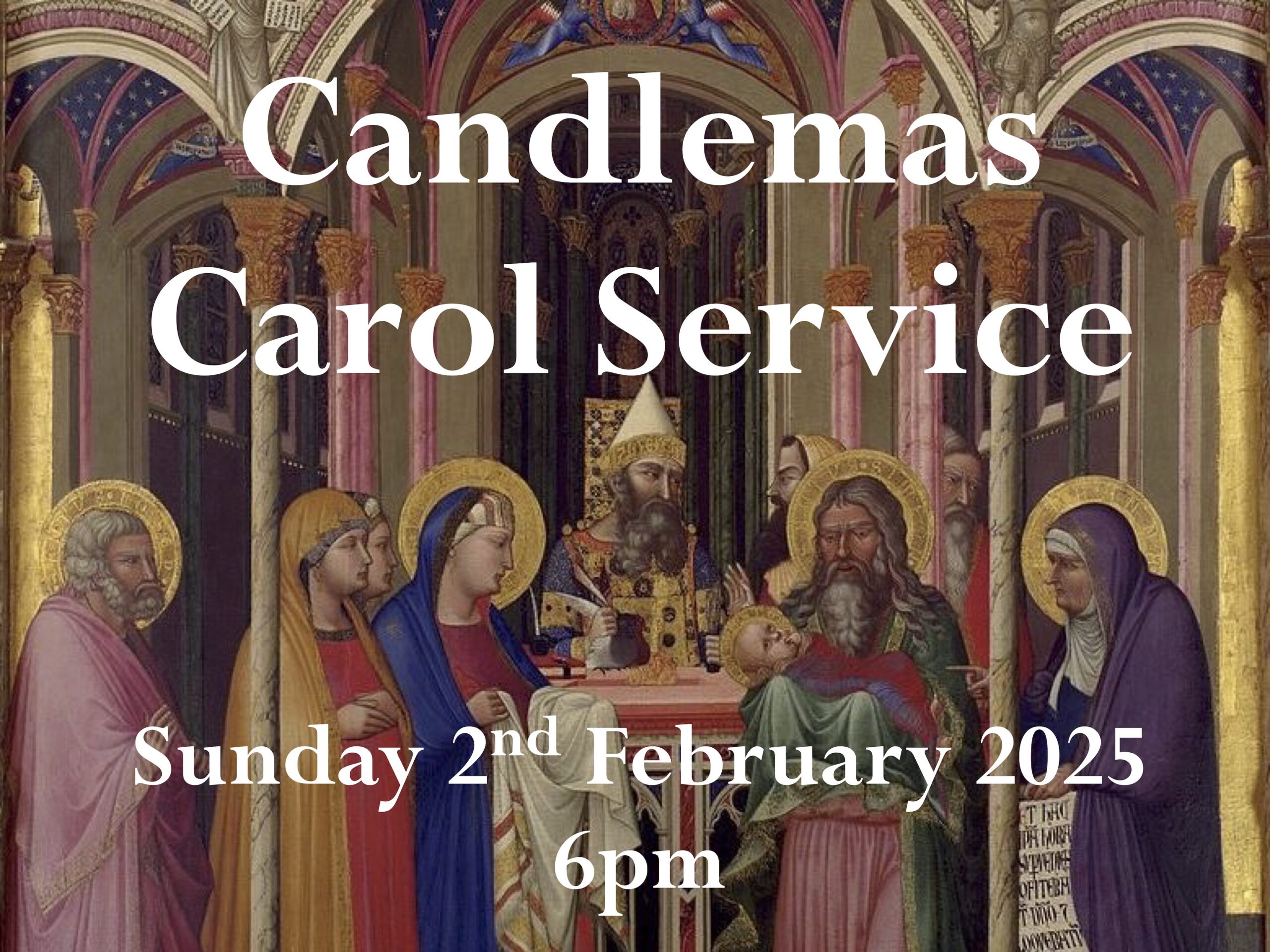
Feast of the Presentation of the Lord
There will be a special Carol Service for Candlemas on Sunday 2nd February at 6.00 pm. The liturgy will conclude with Benediction of the Blessed Sacrament. The Carol Service’s music will include: Maria wallt zum Heiligtum, Eccard; Long since in Egypt, Parry; Richte mich, Gott, Mendelssohn; Hail Gladdening Light, Wood; Hodie Beata Virgo, Philips; Tantum Ergo, Victoria.
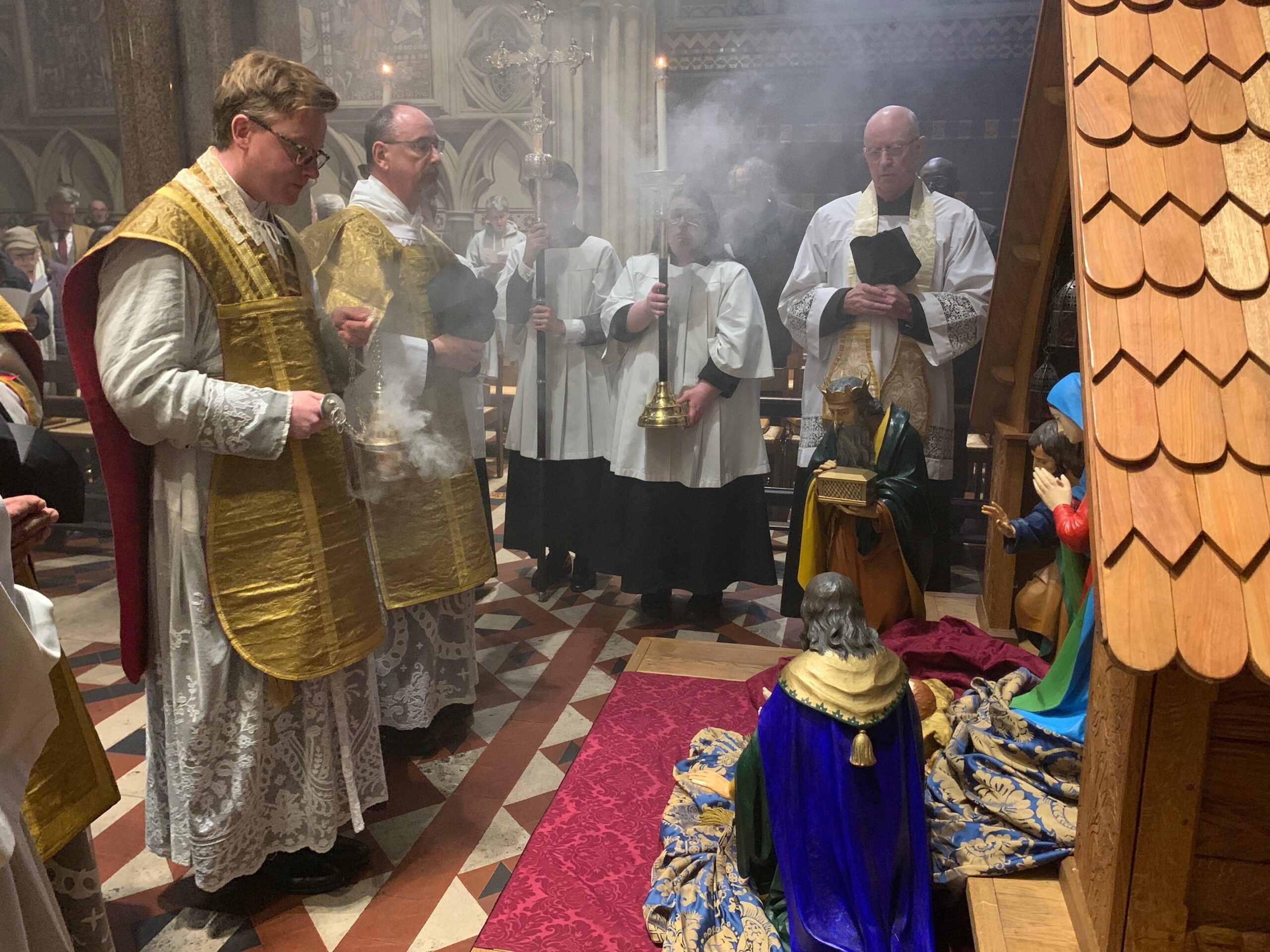
The High Mass for the feast of the Epiphany last Sunday: the stable of Bethlehem has been beautifully transformed into an Epiphany House and the Wise Men present their gifts to the Lord. You can watch the High Mass again here.
Confessions: Fr Graeme Rowlands
Fr Graeme Rowlands, one of our parish’s visiting confessors, will be available to hear confessions on Thursday 16th January at 5.00 pm.
The parish clergy are available to hear confessions before or after any Low Mass, on Saturdays at 6.00 pm or by appointment.
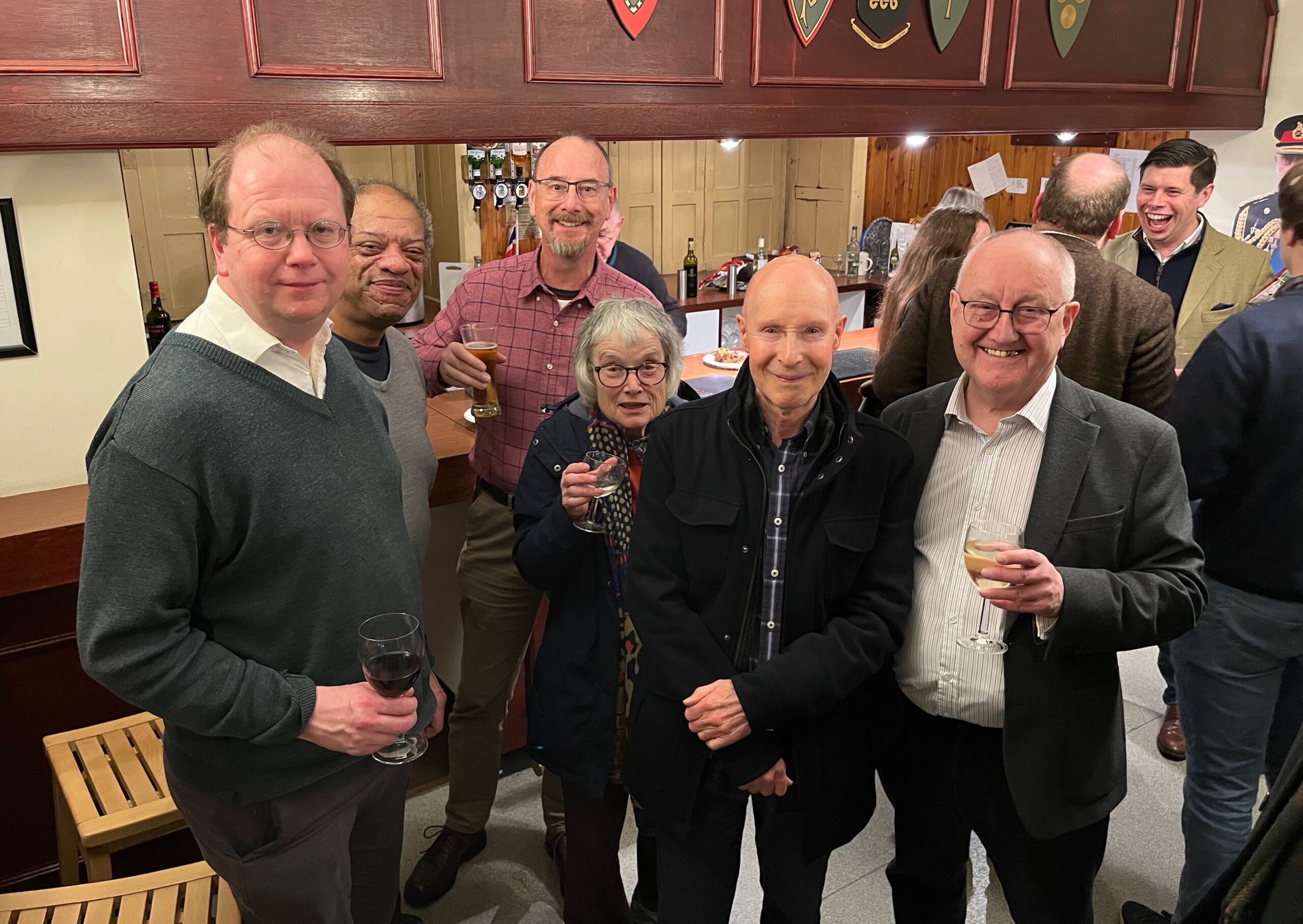
What fun we had in our parish bar after the Epiphany Carol Service last Sunday. It was so good to be able to welcome visitors, friends and parishioners alike.
The Society of King Charles the Martyr
The Annual Commemoration by the Society of King Charles the Martyr of the saintly death of Charles I will take place at All Saints’ on Thursday 30th January 2025 at 12 noon with a Solemn High Mass. This will be followed by the opportunity to reverence the Society’s relics of the Royal Martyr. All parishioners of All Saints’ are welcome to attend the liturgy.
The commemoration is taking place at All Saints’ this year because the Banqueting House in Whitehall his once again unavailable because of restoration and building works.
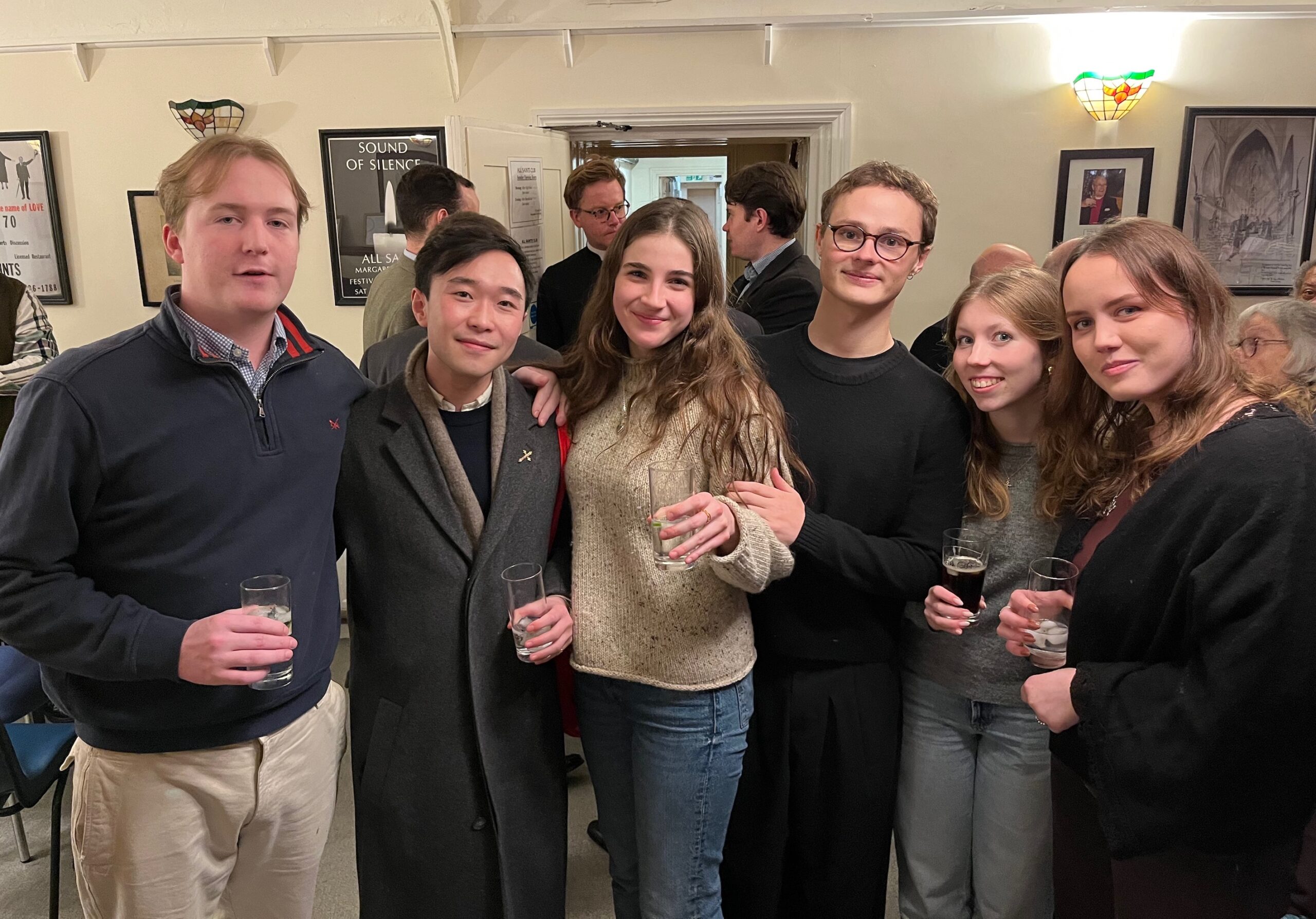
Drinks in our parish bar after the Epiphany Carol Service on Sunday night. You can watch the Carol Service again here.
Homeless Shelter
Our second evening staffing the winter homeless shelter at the American International Church on Tottenham Court Road will take place during the evening and night of Wednesday 5th February/Thursday 6th February 2025.
There is an array of different duties that need filling: we need volunteers to prepare and make beds; cook a meal; spend time with our homeless guests; sleep overnight; and then prepare breakfast in the morning.
Please be in touch with the parish office (office@asms.uk) if you would like to volunteer, letting us know what job you would like to do and how long you can volunteer for.
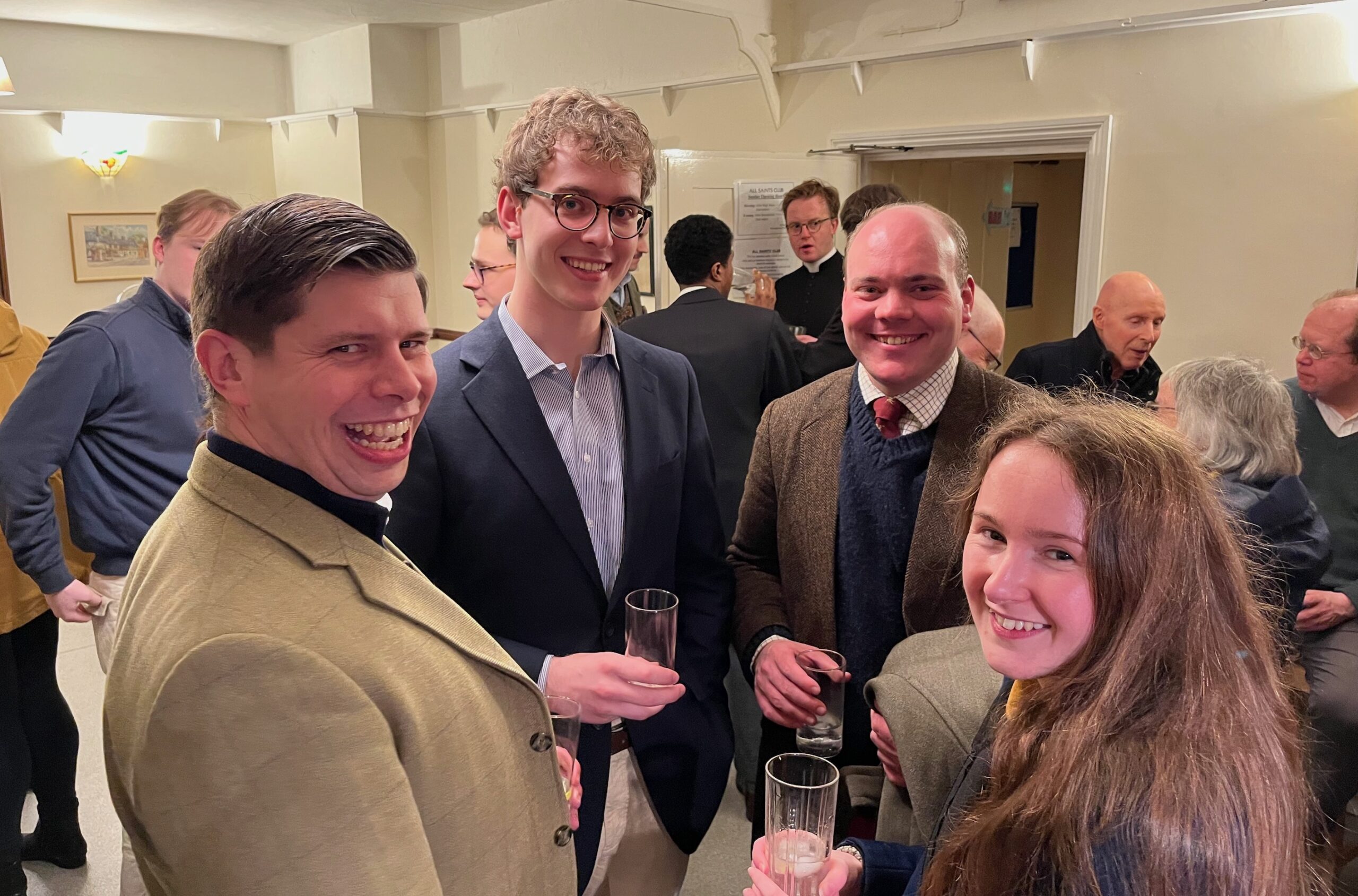
Drinks in our parish bar after the Epiphany Carol Service on Sunday night.
British Museum: Silk Roads
There will be a parish trip on 7th February 2025, to see the splendid new exhibition at the British Museum entitled, “Silk Roads.” The exhibition examines the network of trade, travel and intellectual connections that linked East and West through the first Millennium.
I am particularly grateful that we have been able to obtain from the British Museum 15 free tickets for this exhibition. They will be apportioned on a “first come; first served” basis. We will meet at the British Museum at 6.00 pm and you can book your place on this trip here on our Eventbrite account. Our visit to the British Museum will finish with the option of dinner at Le Beaujolais restaurant in Soho. The 3 course dinner at Le Beaujolais is £55 per head with parishioners paying for their own drinks.
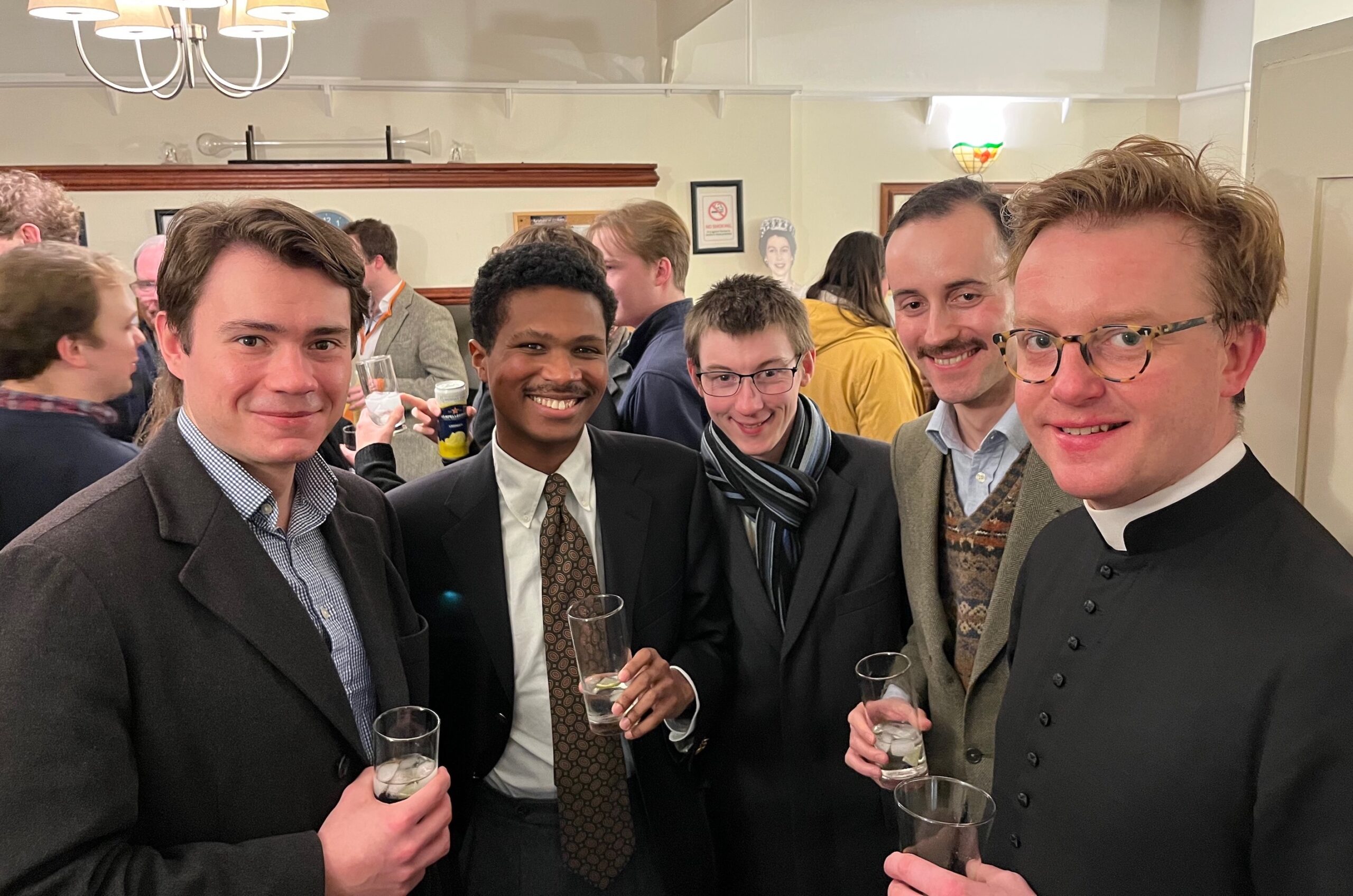
Drinks in our parish bar on Sunday night after the Epiphany Carol Service.
Attendance last Sunday
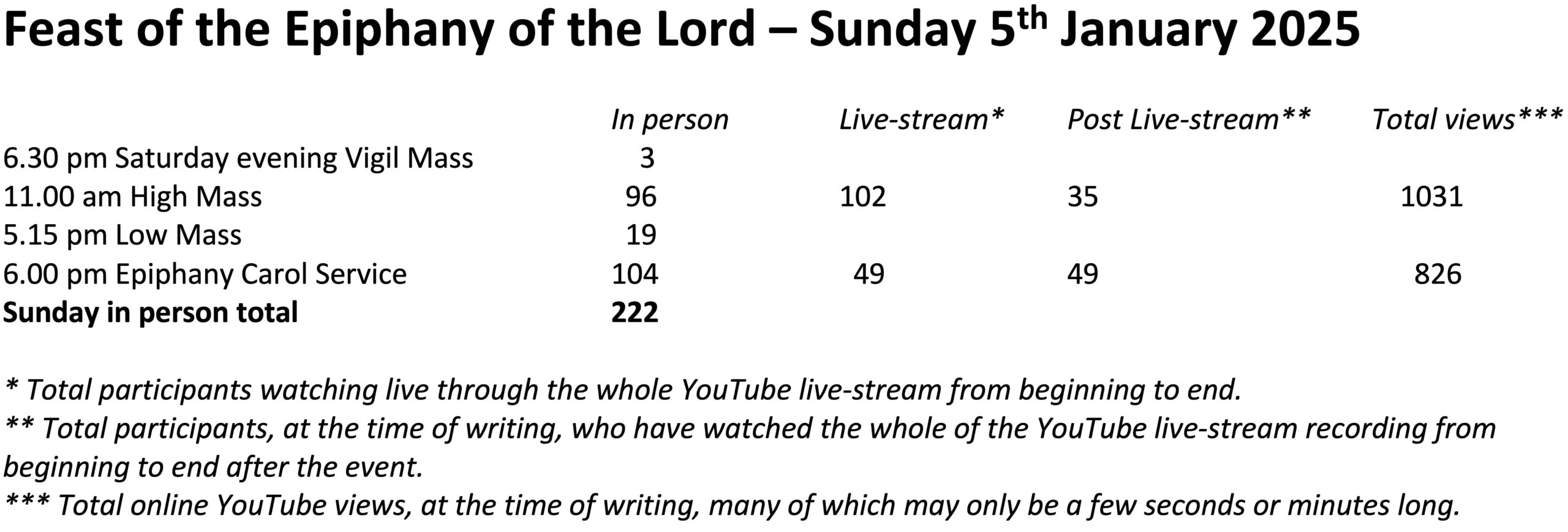
For your prayers
The Friends of All Saints’ Margaret Street:
12th – Derek Bussey, Katherine Butler, Maureen Cambrey, David Caplowe, Adrian Carlton-Oatley, Timothy Cassady, Kate Charles, Stuart Chillingworth, Robert Chote, Sandy Christian
13th – Roger Clark, Catharine Clarke, David and Mavis Cleggett, Graham Colville
14th – Karolyn Cooper, William Cooper Bailey, Peter Coulson, Steven Cox, Dr Yvonne Craig, Juliet Cridland
15th – Kirill Dashkovskiy, Christopher Davies, Peter Dennis, Laura Denton, Joshua Dolphin
16th – Linda Edwards, Pamela Edwards, Dr Terrence Ellsworth, Carolyn Farrar
17th – Sue Feakin, Adrian Felaar, Elizabeth Ferguson, Daniel Fielden, Janice Fielden, Nigel Fisher, Mark Fleming
18th – Stuart Fletcher, Christopher Forman, Antony Fox, Dr Ralph Donald Fram, Dr Jason Frost, Derrick French, Charlotte Gauthier, Dr Rebecca Gibbs, Margaret Goddard, Paul Golding, John Goldsmith
The sick:
Karan Bilimoria, Zara Bilimoria, David Craig, Jack de Gruiter, Tony Hawkins, Fr Harry Hodgetts, Michael Lamprell, Dorothea Liebe-Kreutzner, Elizabeth Lyon, James Rodger
The recently departed:
Sister Adrian SLG, John Cragg, Jan Smith, Eve Tarrant
The faithful departed:
12th – Charles Backus
13th – Dorothea Graham, Vivian Curson, George Currie
14th – Alfred Stephens, Ethel Hewelson, Hugh Shepheard, Lyn Jones, Mavis Mercer
15th – John Spencer
16th – Margaret Henwood, George Haines, Dennis Black, Claire Browne
17th – Elizabeth King, Beatrice Ansah
18th – Albert Sheppard
Services this Week
Saturday 11th January – Epiphany Feria
12 noon Low Mass
6.30 pm Vigil Mass of Sunday
Sunday 12th January – Baptism of the Lord
8.30 am Low Mass
11 am High Mass
5.15 pm Low Mass
6.00 pm Evensong and Benediction
Monday 13th January – Feria
12 noon Low Mass
6.30 pm Low Mass
Tuesday 14th January – Feria
12 noon Low Mass
6.30 pm Low Mass
Wednesday 15th January – Feria
12 noon Low Mass
5.30 pm Holy Hour
6.30 pm Low Mass
Thursday 16th January – Feria
12 noon Low Mass
6.30 pm Low Mass
Friday 17th January – St Antony, Abbot
12 noon Low Mass
6.30 pm Low Mass
Saturday 18th January – Monthly Requiem
12 noon Low Mass of Requiem
6.30 pm Vigil Mass of Sunday
Sunday 19th January – Epiphany II
8.30 am Low Mass
11 am High Mass
5.15 pm Low Mass
6.00 pm Evensong and Benediction
